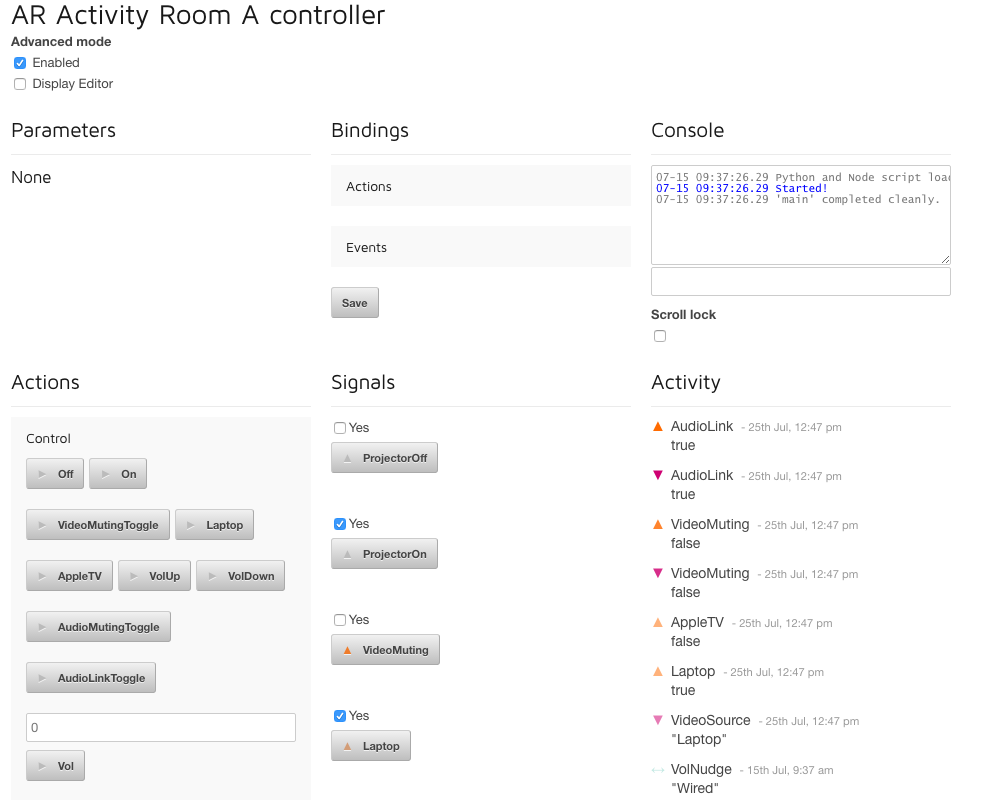Nodel is a digital media control system for museums and galleries.
Nodel is typically used for the control, monitoring and scheduling of digital media devices. With a design focused on galleries, museums, corporate meeting rooms and digital signage.
An active instance of Nodel can manage any number of integrate media devices, or assistant tools (schedulers, monitors, clusters) to form a coherent and manageable group of nodes.
These nodes are discoverable from other active instances of Nodel on the network, by which a series of user specified bindings allows the seamless propagation of remote actions and events between a group of nodes.
The nodes are written utilising a Python (Jython) API, examples of which are available on the recipes repository.
There's also a fully featured web interface for configuration of nodes, including an in-line editor to encourage most activities to take place within the platform.
- Java core
- Python (Jython) API to integrate systems (called nodes)
- Zeroconf networking manages decentralised network communication
- Web user interface to manage integrated nodes
- download a release
- open a console
java -jar nodelhost-2.1.1-rc1.jar- drop some recipes into
nodesfolder - check http://localhost:8085
- Latest releases can be found in github releases
- To build from scratch, clone repository and use Gradle:
gradle :nodel-jyhost-java:build- Check
nodel-jyhost-java\build\distributions\standalonedirectory
- ensure Java 7 or higher is installed (use
java -version) - for service / daemon use, see wiki pages
- check
bootstrapfiles for startup config
- Platform - Mozilla Public License, version 2.0
- Recipes - MIT License

